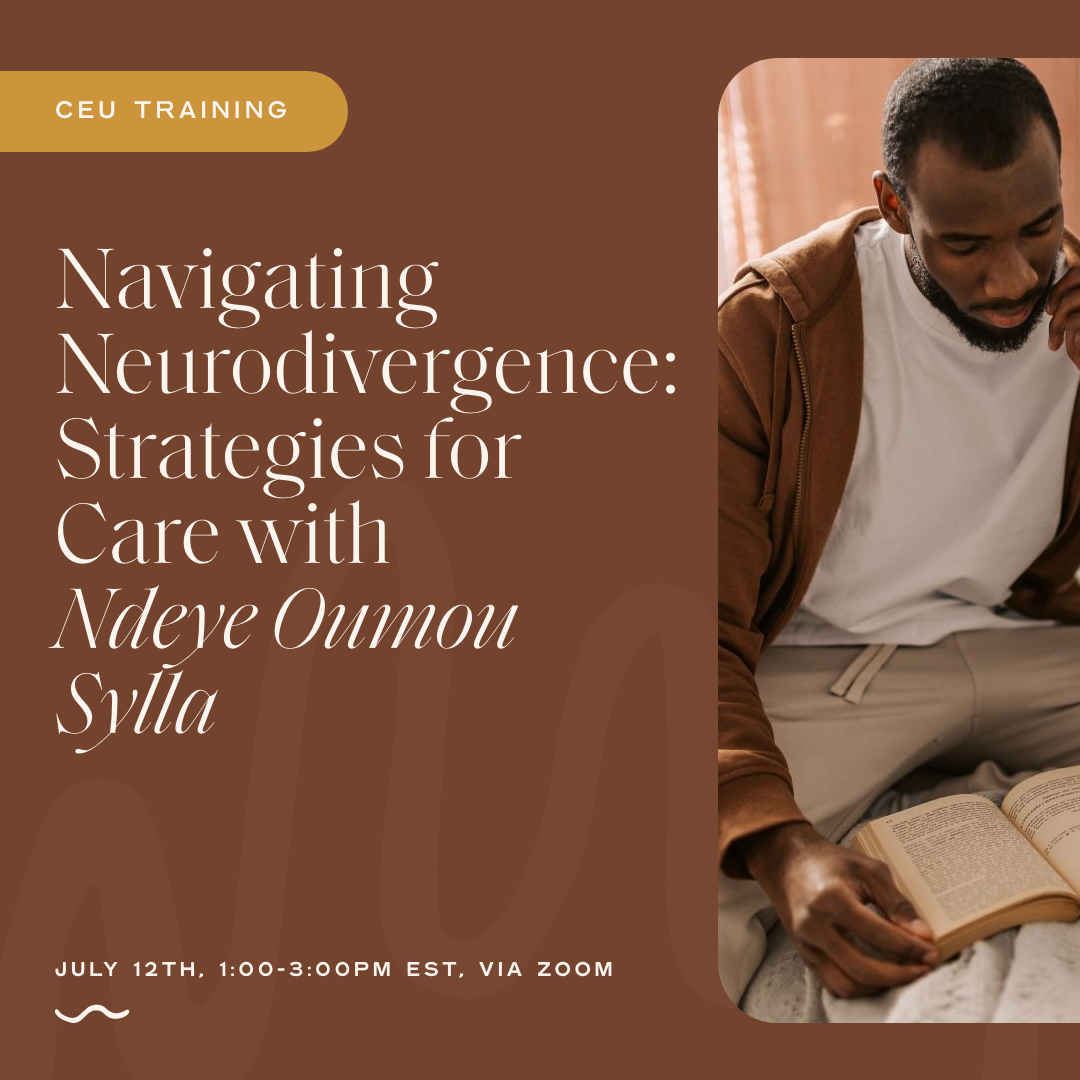 Image 1 of 2
Image 1 of 2

 Image 2 of 2
Image 2 of 2



Clinically Supporting Non-Monogamous Clients
April 19th, 1:00- 3:00 pm EST, conducted online via Zoom
During this course, participants will develop a deeper understanding of how to support clients who identify as consensually non-monogamous (CNM).
The number of individuals exploring non-monogamous relationships continues to rise, with 22% of Americans being involved in a CNM relationship at some point in their life (Haupert, Gesselman, Moors, Fisher, & Garcia, 2017) and roughly 5% currently in a CNM (Levine, Herbenick, Martinez, Fu, & Dodge, 2018; Rubin, Moors, Matsick, Ziegler, & Conley, 2014) relationship. Given the prevalence of this growing community, the need for clinicians to support this community continues to rise. Mental health clinicians have continued to play a pivotal role in supporting marginalized communities, yet without the necessary clinical training, clinicians are subject to misinformation, and CNM-specific stigma impacting clinician bias and harmful practices (Schechinger, Sakaluk, Moors, 2018).
Upon the completion of this course, participants will be able to define key terms, common relationship orientation structures, establish tips for creating a more CNM-inclusive clinical practice, and develop clinical tools to support CNM clients. Participants will have the opportunity to apply their knowledge during a didactic case presentation to ensure understanding.
Learning objectives:
Deepen your understanding of the CNM community
Develop key tools and skills to use while clinically supporting the CNM community
Understand various clinical interventions that can be applied to common concerns among the CNM community
This training is eligible for 2 Continuing Education Credits for LMHCs, LCSWs, and LMSWs.
April 19th, 1:00- 3:00 pm EST, conducted online via Zoom
During this course, participants will develop a deeper understanding of how to support clients who identify as consensually non-monogamous (CNM).
The number of individuals exploring non-monogamous relationships continues to rise, with 22% of Americans being involved in a CNM relationship at some point in their life (Haupert, Gesselman, Moors, Fisher, & Garcia, 2017) and roughly 5% currently in a CNM (Levine, Herbenick, Martinez, Fu, & Dodge, 2018; Rubin, Moors, Matsick, Ziegler, & Conley, 2014) relationship. Given the prevalence of this growing community, the need for clinicians to support this community continues to rise. Mental health clinicians have continued to play a pivotal role in supporting marginalized communities, yet without the necessary clinical training, clinicians are subject to misinformation, and CNM-specific stigma impacting clinician bias and harmful practices (Schechinger, Sakaluk, Moors, 2018).
Upon the completion of this course, participants will be able to define key terms, common relationship orientation structures, establish tips for creating a more CNM-inclusive clinical practice, and develop clinical tools to support CNM clients. Participants will have the opportunity to apply their knowledge during a didactic case presentation to ensure understanding.
Learning objectives:
Deepen your understanding of the CNM community
Develop key tools and skills to use while clinically supporting the CNM community
Understand various clinical interventions that can be applied to common concerns among the CNM community
This training is eligible for 2 Continuing Education Credits for LMHCs, LCSWs, and LMSWs.
April 19th, 1:00- 3:00 pm EST, conducted online via Zoom
During this course, participants will develop a deeper understanding of how to support clients who identify as consensually non-monogamous (CNM).
The number of individuals exploring non-monogamous relationships continues to rise, with 22% of Americans being involved in a CNM relationship at some point in their life (Haupert, Gesselman, Moors, Fisher, & Garcia, 2017) and roughly 5% currently in a CNM (Levine, Herbenick, Martinez, Fu, & Dodge, 2018; Rubin, Moors, Matsick, Ziegler, & Conley, 2014) relationship. Given the prevalence of this growing community, the need for clinicians to support this community continues to rise. Mental health clinicians have continued to play a pivotal role in supporting marginalized communities, yet without the necessary clinical training, clinicians are subject to misinformation, and CNM-specific stigma impacting clinician bias and harmful practices (Schechinger, Sakaluk, Moors, 2018).
Upon the completion of this course, participants will be able to define key terms, common relationship orientation structures, establish tips for creating a more CNM-inclusive clinical practice, and develop clinical tools to support CNM clients. Participants will have the opportunity to apply their knowledge during a didactic case presentation to ensure understanding.
Learning objectives:
Deepen your understanding of the CNM community
Develop key tools and skills to use while clinically supporting the CNM community
Understand various clinical interventions that can be applied to common concerns among the CNM community
This training is eligible for 2 Continuing Education Credits for LMHCs, LCSWs, and LMSWs.
-
Due to the nature of this product, all sales are final and we are unable to offer refunds. If you are no longer able to attend a group, email us at info@kenyacrawford.com and we can transfer your confirmation to the following group.
-
Kenya Crawford, LMHC is recognized by the New York State Education Department's State Board for Mental Health Practitioners as an approved provider of continuing education for licensed mental health counselors. #MHC-0269. Kenya Crawford, LMHC is recognized by the New York State Education Department's State Board for Social Work as an approved provider of continuing education for licensed social workers #SW-0736.
Kenya Crawford, LLC has been approved by NBCC as an Approved Continuing Education Provider, ACEP No. 7470.








